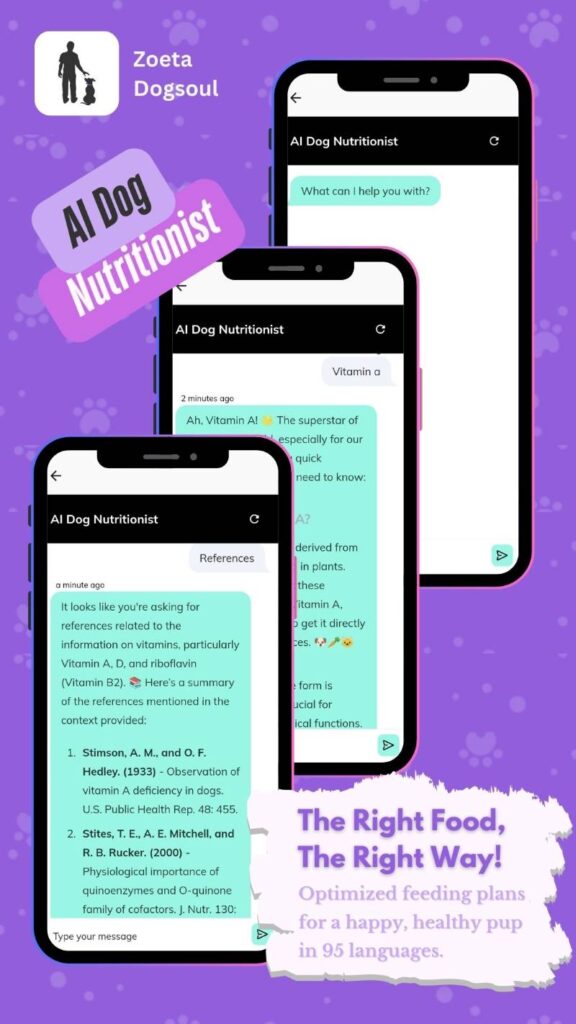Did you know that your Yorkshire Terrier burns calories at nearly twice the rate of larger breeds? This fascinating metabolic quirk is just one of many breed-specific traits that make feeding your Yorkie both a science and an art. Let us guide you through the intricate world of Yorkshire Terrier nutrition, where every kibble counts and understanding your tiny companion’s needs can add years to their life.
The Yorkshire Terrier’s Metabolic Marvel
Your Yorkie’s metabolism is nothing short of remarkable. These pocket-sized powerhouses maintain a metabolic rate that would make marathon runners envious, burning through calories at an impressive pace to maintain their body temperature and support their energetic lifestyle. This high-octane metabolism means your furry friend needs more calories per pound of body weight than their larger cousins – a fact that often surprises new Yorkie parents.
Understanding Your Yorkie’s Energy Engine
The science behind your Yorkie’s metabolism reveals a fascinating adaptation. Their small body size creates a larger surface area relative to their volume, meaning they lose heat more quickly than larger dogs. To compensate, their bodies work overtime, creating what veterinary nutritionists call a “metabolic premium.” This means:
- Your 7-pound Yorkie may need 40 calories per pound daily, while a 70-pound Labrador needs only 20-25
- Their heart beats faster, their cells work harder, and their digestive system processes food more rapidly
- Temperature regulation requires constant energy expenditure, especially in cooler climates
The Small Stomach Challenge
Here’s where things get interesting – despite needing more calories per pound, your Yorkie’s stomach is about the size of a walnut. This creates a unique feeding puzzle that you’ll need to solve. Their digestive tract, proportionally shorter than larger breeds, means food moves through more quickly, requiring careful attention to nutrient density and feeding frequency.
You might notice your Yorkie becoming cranky or lethargic between meals. This isn’t just hunger – it’s their body signaling a dip in blood sugar, a common challenge in toy breeds that we’ll explore in detail. 🐾
Decoding Your Yorkie’s Digestive System
Your Yorkshire Terrier’s digestive system is a delicate, efficient machine that requires careful maintenance. While they generally boast good digestive efficiency, their miniature gastrointestinal tract comes with unique sensitivities that savvy owners must understand.
The Journey from Bowl to Body
When your Yorkie takes that first bite, they’re initiating a digestive process that’s both similar to and distinct from larger breeds. Their small mouths and tiny teeth mean thorough chewing is essential – yet many Yorkies tend to gulp their food with enthusiasm. This eagerness, combined with their small esophagus, increases the risk of choking or regurgitation.
The stomach’s limited capacity means large meals can overwhelm the system, leading to:
- Vomiting or regurgitation
- Bloating and discomfort
- Inefficient nutrient absorption
- Increased risk of hypoglycemia between meals
Digestive Sensitivities: Your Yorkie’s Achilles Heel
You’ve probably noticed your Yorkie can be quite particular about their food. This isn’t just pickiness – it’s often their body’s way of communicating digestive sensitivities. Common triggers include:
- Rapid diet changes that shock their sensitive system
- High-fat foods that overwhelm their small gallbladder
- Certain proteins that trigger inflammatory responses
- Artificial additives that their compact liver struggles to process
Understanding these sensitivities helps you become a better advocate for your Yorkie’s health. Next, we’ll explore how to balance their nutritional needs while respecting these digestive limitations.
The Protein Puzzle: Building Blocks for Your Tiny Athlete
Protein requirements for Yorkshire Terriers vary dramatically throughout their life stages, and getting it right can mean the difference between a thriving companion and one struggling with health issues. Your Yorkie’s protein needs are influenced by their high metabolic rate, activity level, and life stage – creating a complex nutritional equation.
Puppy Power: Fueling Rapid Growth
During the puppy stage (up to 12 months), your Yorkie undergoes explosive growth despite their tiny size. Their protein requirements during this critical period range from 22-28% of their diet’s dry matter. This isn’t just about quantity – quality matters immensely. Look for:
- First ingredients listing specific meat sources (chicken, turkey, lamb)
- Amino acid profiles that support rapid tissue development
- Easily digestible proteins that won’t overwhelm their developing digestive system
You might notice your Yorkie puppy eating voraciously one day and picking at food the next. This is normal – their tiny stomachs and rapid growth create fluctuating appetite patterns that can worry new owners unnecessarily.
Adult Maintenance: The Balancing Act
Adult Yorkies (1-7 years) require a careful protein balance of 18-22% dry matter. This range supports their active lifestyle while preventing excess that could strain their kidneys. The challenge? Many commercial foods designed for “small breeds” actually contain protein levels more suitable for larger dogs.
Senior Support: Maintaining Muscle Mass
As your Yorkie enters their golden years (7+ years), their protein needs actually increase slightly to 20-25%. This counterintuitive requirement helps combat age-related muscle loss (sarcopenia) that can rob senior dogs of mobility and quality of life. However, the protein source becomes even more critical – highly digestible, low-phosphorus proteins protect aging kidneys while maintaining muscle. 🧡
Fat Facts: Essential Energy for Your Energetic Companion
Fat often gets a bad reputation, but for your Yorkshire Terrier, it’s absolutely essential. These concentrated energy sources provide more than twice the calories of proteins or carbohydrates – crucial for meeting your Yorkie’s high metabolic demands within their stomach’s tiny capacity.
The Goldilocks Zone of Fat Content
Finding the “just right” fat content requires understanding your individual Yorkie’s needs:
- Puppies (18-22% dry matter): Higher fat supports brain development and provides concentrated energy for growth
- Active Adults (15-20% dry matter): Moderate fat maintains energy without promoting weight gain
- Seniors (12-15% dry matter): Lower fat helps prevent obesity while maintaining coat health
Omega Fatty Acids: More Than Just a Shiny Coat
The type of fat matters as much as the amount. Your Yorkie’s lustrous coat depends on a balanced omega-3 to omega-6 ratio, typically around 1:5 to 1:10. But these essential fatty acids do much more:
- Support cognitive function (especially important for this intelligent breed)
- Reduce inflammation in joints prone to luxation
- Enhance immune system function
- Promote healthy skin barrier function
You’ll know your Yorkie’s fat intake is optimal when their coat gleams, their energy remains steady throughout the day, and they maintain an ideal body condition score. Too little fat manifests as a dull coat and low energy; too much leads to that dreaded Yorkshire “pudge” that stresses their delicate joints.
Carbohydrates: The Controversial Component
The role of carbohydrates in your Yorkie’s diet sparks heated debate among pet nutritionists. While dogs don’t have a specific carbohydrate requirement, these nutrients can play a valuable role when chosen wisely.
Quality Over Quantity
Your Yorkie’s carbohydrate tolerance varies individually, but most benefit from moderate amounts of complex carbohydrates that provide:
- Steady energy release (preventing blood sugar spikes and crashes)
- Dietary fiber for digestive health
- Prebiotics to support beneficial gut bacteria
- Satiety to prevent overeating
The Grain Debate: Navigating Sensitivities
Many Yorkie parents report improved health after switching to grain-free diets. However, the issue isn’t black and white. Some Yorkies thrive on whole grains like brown rice or oatmeal, while others develop:
- Chronic ear infections
- Excessive tear staining
- Digestive upset
- Skin irritation
The key is observing your individual dog’s response. If you notice any of these symptoms, consider a grain-free trial under veterinary guidance. Remember, grain-free doesn’t mean carbohydrate-free – sweet potatoes, peas, and lentils can provide necessary nutrients without triggering sensitivities.
Micronutrients: Small but Mighty
While macronutrients grab headlines, micronutrients quietly perform crucial roles in your Yorkie’s health. These vitamins and minerals work synergistically, and deficiencies can manifest in subtle ways that observant owners should recognize.
Vitamin Vitality
Your Yorkie’s vitamin needs mirror those of larger breeds but in concentrated doses:
- Vitamin A: Essential for their prominent eyes’ health and immune function
- B-Complex: Supports their high-energy metabolism and nervous system
- Vitamin D: Crucial for calcium absorption (especially important for indoor Yorkies with limited sun exposure)
- Vitamin E: Antioxidant protection for their metabolically active cells
Mineral Balance: A Delicate Dance
The mineral requirements for Yorkies demand particular attention to ratios:
- Calcium to Phosphorus (1.2:1 to 1.5:1): Imbalances can affect their already-fragile skeletal system
- Zinc: Supports immune function and wound healing (particularly important for Yorkies prone to skin issues)
- Iron: Maintains healthy blood oxygen levels for their rapid metabolism
- Selenium: Works with Vitamin E as an antioxidant shield
Recognizing Deficiency Signs
Your Yorkie can’t tell you they’re lacking nutrients, but their body speaks volumes:
- Dull, brittle coat despite adequate fat intake
- Slow wound healing or frequent infections
- Lethargy beyond normal aging
- Poor tooth development or dental issues
Next, we’ll explore how food sensitivities can complicate this nutritional picture, making detective work an essential part of Yorkie parenthood.
Unmasking Food Sensitivities: When Good Food Goes Bad
Your Yorkshire Terrier’s food sensitivities can transform mealtime from a joy into a source of distress. These reactions, ranging from true allergies to intolerances, affect a significant percentage of Yorkies and require patient investigation to resolve.
The Usual Suspects
Common trigger foods for Yorkies often surprise owners who assume premium ingredients equal compatibility:
- Chicken: Despite being a common “hypoallergenic” protein, many Yorkies react poorly
- Beef: Can trigger both digestive and skin reactions
- Dairy: Their small bodies often lack sufficient lactase for digestion
- Soy: Causes bloating and gas in sensitive individuals
- Wheat/Corn: Traditional grain sensitivities manifesting as chronic ear infections
Detective Work: Identifying Your Yorkie’s Triggers
Uncovering food sensitivities requires systematic investigation. The gold standard remains the elimination diet:
- Start with a novel protein and carbohydrate your Yorkie has never eaten
- Feed exclusively for 8-12 weeks while symptoms resolve
- Introduce previous foods one at a time, watching for reactions
- Document everything – photos of skin conditions, stool quality charts, behavior changes
Beyond the Bowl: Hidden Sensitivity Sources
You might be surprised where problematic ingredients hide:
- Flavored medications and supplements
- Training treats (even “hypoallergenic” ones)
- Dental chews and rawhides
- Table scraps from well-meaning family members
Your Yorkie’s sensitive system means even tiny amounts of trigger foods can cause reactions lasting days or weeks. This is why consistency and vigilance become your best tools for maintaining their health. 🐾
Life Stage Nutrition: From Tiny Puppy to Distinguished Senior
Your Yorkie’s nutritional journey spans distinct life stages, each with unique requirements that demand careful attention and timely adjustments.
Puppyhood: Building a Strong Foundation (0-12 months)
The puppy stage represents the most critical nutritional period in your Yorkie’s life. During these months, they’ll grow from a palm-sized newborn to nearly their adult size, requiring:
- Frequent Feeding: 4-6 small meals daily to maintain blood sugar
- High Caloric Density: 22-28% protein, 18-22% fat
- DHA Supplementation: Supports brain and vision development
- Controlled Calcium: Prevents developmental orthopedic diseases
Watch for signs of hypoglycemia during this stage – weakness, confusion, or seizures require immediate intervention with honey or corn syrup followed by veterinary care.
Adult Prime: Maintaining the Balance (1-7 years)
Adult Yorkies enter a maintenance phase where preventing obesity becomes paramount. Their nutritional needs stabilize but require careful monitoring:
- Portion Control: Measure every meal to prevent “portion creep”
- Activity-Based Adjustments: Increase calories for active dogs, decrease for couch potatoes
- Dental Health Focus: Choose kibble size and texture that promotes chewing
- Weight Monitoring: Weekly weigh-ins catch problems early
Senior Years: Adapting to Change (7+ years)
Senior Yorkies face new challenges requiring nutritional adaptation:
- Enhanced Protein: 20-25% to combat muscle loss
- Joint Support: Glucosamine and chondroitin for mobility
- Antioxidant Boost: Vitamins C and E for cognitive function
- Digestibility Focus: Easier-to-process proteins and fats
You’ll notice your senior Yorkie may develop pickier eating habits. This isn’t just stubbornness – aging can diminish smell and taste, making food less appealing. Warming food slightly or adding low-sodium broth can reignite their interest.

Breed-Specific Health Challenges: Nutritional Management Strategies
Yorkshire Terriers face several breed-specific health challenges that nutrition can either exacerbate or alleviate. Understanding these connections empowers you to make food choices that support long-term health.
Hypoglycemia: The Hidden Danger
Your Yorkie’s susceptibility to low blood sugar represents one of the breed’s most serious health risks. This condition, particularly dangerous in puppies and small adults, requires proactive nutritional management:
- Prevention Protocol: Never allow more than 4 hours between meals
- Emergency Supplies: Keep honey or corn syrup readily available
- Food Selection: Choose foods with complex carbohydrates for steady energy release
- Warning Signs: Lethargy, stumbling, glassy eyes, or seizures demand immediate action
Luxating Patella: The Weight Connection
While primarily genetic, patellar luxation severity directly correlates with body weight. Every extra ounce stresses your Yorkie’s delicate knee joints:
- Ideal Body Condition: You should easily feel ribs with light pressure
- Weight Management: Even 1 pound overweight significantly impacts joint health
- Nutritional Support: Omega-3 fatty acids reduce inflammation
- Exercise Balance: Maintain muscle tone without excessive joint stress
Dental Disease: The Small Mouth Syndrome
Your Yorkie’s crowded teeth create perfect hiding spots for bacteria, making dental disease almost inevitable without intervention:
- Kibble Considerations: Size and texture that promote chewing
- Dental Supplements: Products containing hexametaphosphate to reduce tartar
- Raw Alternatives: Appropriate raw meaty bones under supervision
- Professional Care: Annual cleanings become nutritional interventions
Liver Shunt Management
Portosystemic shunts, while less common, require specialized nutritional approaches:
- Protein Restriction: High-quality but limited amounts
- Copper Limitation: Avoiding copper accumulation
- Frequent Feeding: Preventing ammonia buildup
- Prescription Diets: Often necessary for optimal management
Understanding these breed-specific challenges transforms you from passive feeder to active health advocate. Next, we’ll explore how different feeding methods can support or undermine these health goals.
Feeding Methods Decoded: Finding Your Yorkie’s Perfect Match
The best diet for your Yorkshire Terrier isn’t just about what you feed, but how you feed it. Each feeding method offers unique benefits and challenges for this particular breed.
Commercial Kibble: The Convenient Choice
High-quality commercial kibble designed specifically for toy breeds can provide complete nutrition with unmatched convenience:
Advantages:
- Precise nutritional formulation meeting AAFCO standards
- Dental benefits from crunching
- Long shelf life and easy storage
- Consistent quality and availability
Considerations:
- Processing may reduce some nutrient bioavailability
- Some Yorkies find kibble unpalatable
- Quality varies dramatically between brands
- May contain ingredients triggering sensitivities
Selection Criteria for Yorkie-Appropriate Kibble:
- Kibble size appropriate for tiny mouths
- First ingredient should be named meat
- No artificial colors, flavors, or preservatives
- Appropriate protein and fat levels for life stage
Home-Cooked Diets: The Labor of Love
Many Yorkie parents turn to home cooking for ultimate control over ingredients:
Benefits:
- Complete ingredient transparency
- Customization for individual sensitivities
- Enhanced palatability for picky eaters
- Bonding experience through meal preparation
Challenges:
- Requires extensive nutritional knowledge
- Time-intensive preparation
- Risk of nutritional imbalances
- More expensive than commercial options
Essential Components for Balanced Home Cooking:
- Variety of protein sources (rotating between 3-4)
- Appropriate calcium supplementation
- Omega-3 fatty acid sources
- Veterinary nutritionist consultation for recipe formulation
Raw Feeding: The Ancestral Approach
Raw feeding, while controversial, has passionate advocates in the Yorkie community:
Potential Benefits:
- Improved coat quality and dental health
- Smaller, firmer stools
- Increased meal enjoyment
- Reduced processing of nutrients
Significant Risks:
- Bacterial contamination dangers for tiny dogs
- Choking hazards from bones
- Nutritional imbalances without careful planning
- Not suitable for immunocompromised pets or owners
Safety Protocols for Raw Feeding Yorkies:
- Source from reputable suppliers only
- Freeze for 3 weeks to reduce parasite risk
- Grind bones appropriately for size
- Maintain strict hygiene protocols
Tiny Frame. Mighty Metabolism. Daily Puzzle.
Every bite matters.
Your Yorkie’s metabolism is in overdrive from morning to night, burning calories twice as fast as larger breeds. But their stomach? The size of a walnut. This mismatch makes nutrition a precision game. One skipped meal can lead to hypoglycemia. One oversized portion can cause distress. Feeding your Yorkie isn’t just care—it’s calculation, consistency, and compassion.
Sensitivity behind the sass.
What looks like pickiness is often a gut response—literally. Yorkies react fast to poor-quality food, unnecessary fillers, or ingredients that overload their sensitive systems. Their digestion isn’t built for compromise. Understand the cues: itchy skin, tear stains, digestive upset—they’re not quirks. They’re signals. Listen to them and you’ll unlock a longer, healthier life.



From micro meals to macro impact.
Your Yorkie’s health doesn’t come from big gestures—it comes from small, strategic choices repeated daily. The right feeding method, properly portioned nutrients, and consistent routines shape everything from energy levels to coat shine. Master the nuances, adjust with age, and don’t underestimate the power of a tablespoon. You’re not just feeding a dog—you’re fuelling a legacy. 🧡
The Art of Portion Control and Feeding Schedules
Mastering portion control for your Yorkie requires precision that would make a pharmacist proud. Their small size means even slight overfeeding can lead to obesity, while underfeeding risks dangerous hypoglycemia.
Calculating Your Yorkie’s Caloric Needs
The general formula starts simple but requires adjustment:
- Base calculation: 30 x weight in kg + 70 = daily calories
- Activity multiplier: 1.2-1.4 for normal activity, up to 2.0 for very active
- Life stage adjustment: Puppies need 2-3x adult maintenance
Example for a 5-pound adult Yorkie:
- Base: 30 x 2.3 kg + 70 = 139 calories
- With normal activity: 139 x 1.3 = 180 calories daily
- Divided into 3 meals: 60 calories per meal
Visual Portion Guides
Since measuring cups can be imprecise for tiny portions:
- Invest in a kitchen scale for accuracy
- One ounce of kibble typically contains 100-120 calories
- A Yorkie’s meal often fits in a shot glass
- Document portions with photos for consistency
Optimal Feeding Schedules by Life Stage
Puppies (8 weeks – 6 months):
- 4-6 meals daily
- Never more than 3-4 hours between meals during waking hours
- Last meal 1 hour before bedtime
- Middle-of-night feeding for very young/small puppies
Adults (6 months – 7 years):
- 3-4 meals daily
- Consistent timing to regulate digestion
- Avoid exercise 30 minutes before/after meals
- Monitor for weight changes monthly
Seniors (7+ years):
- 3-4 smaller meals to aid digestion
- Warmed food to enhance aroma
- Elevated feeders for comfort
- Flexibility for changing appetites
Your Yorkie’s feeding schedule should fit your lifestyle while meeting their metabolic needs. Consistency matters more than perfection – their internal clock will adapt to regular meal times. 🧡
Navigating the Picky Eater Phenomenon
If you’ve ever stood in your kitchen, holding your fifth attempt at dinner while your Yorkie turns their nose up disdainfully, you’re not alone. Picky eating in Yorkshire Terriers isn’t just frustrating – it’s practically a breed characteristic that requires creative solutions.
Understanding the Yorkie Palate
Your Yorkie’s pickiness often stems from multiple factors:
- Evolutionary Heritage: As companion dogs, they learned refusing food often led to tastier options
- Texture Sensitivity: Their small mouths make them particular about food texture
- Temperature Preferences: Many prefer slightly warmed food
- Attention-Seeking: They’ve learned that refusing food gets your undivided attention
Strategic Solutions for Mealtime Success
The 15-Minute Rule:
- Offer food for exactly 15 minutes
- Remove uneaten portions without comment
- No treats or alternatives until next scheduled meal
- Hunger eventually overrides pickiness
Enhancing Appeal Without Compromising Nutrition:
- Add warm bone broth (low sodium)
- Mix in a teaspoon of plain pumpkin
- Sprinkle freeze-dried meat powder
- Rotate between 2-3 approved foods
When Pickiness Signals Problems
Sudden changes in eating habits warrant investigation:
- Dental pain from overcrowded teeth
- Digestive discomfort from sensitivities
- Medication side effects
- Underlying health issues
Document eating patterns to distinguish between behavioral pickiness and medical issues. Your vet needs this information for accurate diagnosis.
Supplements and Nutraceuticals: Enhancing Your Yorkie’s Health
The supplement industry offers countless products promising to enhance your Yorkie’s health, but which ones truly benefit this specific breed? Understanding breed-specific needs helps you navigate this overwhelming market.
Essential Supplements for Most Yorkies
Omega-3 Fatty Acids:
- Dose: 20-30mg EPA/DHA per pound body weight
- Benefits: Reduces inflammation, supports cognitive function
- Sources: Fish oil, krill oil, algae-based options
- Quality markers: Third-party tested, refrigerated storage
Probiotics:
- Strains: Look for Lactobacillus and Bifidobacterium species
- Benefits: Supports digestive health, immune function
- Administration: Away from meals for maximum effectiveness
- Storage: Follow manufacturer guidelines carefully
Joint Support (for adults/seniors):
- Glucosamine: 15-20mg per pound
- Chondroitin: 10-15mg per pound
- MSM: Additional anti-inflammatory support
- Start early for prevention rather than treatment
Breed-Specific Considerations
For Hypoglycemia Prevention:
- Glucose supplements for emergency use
- Chromium for blood sugar regulation (under veterinary guidance)
- B-complex vitamins for energy metabolism
For Dental Health:
- Hexametaphosphate-containing supplements
- Cranberry extract for antibacterial properties
- CoQ10 for gum health
For Liver Support:
- Milk thistle (silymarin) for dogs with liver concerns
- SAM-e for liver function
- Vitamin E as antioxidant support
Supplement Safety Guidelines
Remember these crucial points:
- More isn’t better – excess supplements can cause harm
- Introduce one supplement at a time to monitor effects
- Choose products specifically formulated for dogs
- Consult your veterinarian before starting any supplement regimen
- Document changes in health, behavior, or appearance

Creating Your Yorkie’s Personalized Nutrition Plan
Armed with comprehensive knowledge about Yorkshire Terrier nutrition, you’re ready to create a personalized feeding strategy that supports your furry friend’s unique needs. This isn’t a one-size-fits-all approach – it’s a dynamic plan that evolves with your dog.
Step 1: Baseline Assessment
Begin with honest evaluation:
- Current weight and body condition score
- Activity level and lifestyle
- Known health issues or genetic predispositions
- Food preferences and sensitivities
- Your lifestyle and budget constraints
Step 2: Goal Setting
Establish realistic nutritional goals:
- Achieve/maintain ideal body weight
- Address specific health concerns
- Improve coat quality or energy levels
- Manage diagnosed conditions through diet
- Enhance quality of life at current life stage
Step 3: Implementation Strategy
Week 1-2: Observation Phase
- Document current feeding routine
- Note energy levels throughout day
- Photograph body condition
- Track bathroom habits
Week 3-4: Gradual Transition
- Introduce new food over 7-10 days
- Monitor for digestive upset
- Maintain consistent feeding times
- Resist urge to make multiple changes
Month 2-3: Fine-Tuning
- Adjust portions based on weight changes
- Consider supplement additions
- Evaluate coat and energy improvements
- Schedule veterinary check-in
Step 4: Long-term Monitoring
Success requires ongoing attention:
- Monthly weight checks
- Quarterly body condition assessments
- Annual blood work to catch issues early
- Dietary adjustments for life changes
- Flexibility as preferences evolve
Troubleshooting Common Nutritional Challenges
Even with the best intentions, you’ll likely encounter nutritional hurdles with your Yorkie. Here’s how to address the most common challenges:
Challenge: Persistent Weight Gain Despite Portion Control
Solutions:
- Verify everyone in household follows feeding rules
- Check calorie content of current food
- Increase exercise gradually
- Rule out hypothyroidism with blood work
- Consider lower-calorie food options
Challenge: Chronic Digestive Upset
Approach:
- Simplify diet to single protein/carbohydrate
- Add digestive enzymes or probiotics
- Ensure adequate fiber intake
- Check for parasites or infections
- Consider prescription digestive diets
Challenge: Refusing New Healthy Food
Strategies:
- Mix tiny amounts with preferred food
- Try different temperatures or textures
- Use puzzle feeders to make eating engaging
- Ensure no underlying dental issues
- Practice patience – transitions take time
Challenge: Managing Multiple Pets with Different Needs
Solutions:
- Feed Yorkie in elevated location
- Use microchip feeders for access control
- Supervise all meal times
- Create separate feeding stations
- Train “leave it” command rigorously
The Science of Treats and Training Rewards
Treats play a vital role in your Yorkie’s life, from training tools to bonding moments. However, their small size means treats can quickly derail nutritional balance if not managed carefully.
The 10% Rule
Veterinary nutritionists recommend treats comprise no more than 10% of daily caloric intake. For your Yorkie, this means:
- 5-pound Yorkie eating 180 calories daily = 18 calories from treats
- Many commercial treats contain 20-30 calories each
- Break treats into tiny pieces for training
- Count everything – dental chews, table scraps, training rewards
Healthy Treat Alternatives
Single-Ingredient Options:
- Freeze-dried liver pieces (break into tiny bits)
- Small blueberries (natural antioxidants)
- Tiny carrot pieces (low calorie, satisfying crunch)
- Green beans (fiber and vitamins)
Homemade Training Treats:
- Baked sweet potato coins
- Dehydrated chicken breast strips
- Frozen yogurt dots (plain, unsweetened)
- Mini egg and vegetable frittatas
Treats to Avoid
Certain treats pose particular risks for Yorkies:
- Rawhide (choking hazard for small throats)
- Cooked bones (splintering danger)
- High-fat treats (pancreatitis risk)
- Sugar-free products with xylitol (toxic)
- Grapes, raisins, chocolate (poisonous)
Building a Support Network for Nutritional Success
Your Yorkie’s nutritional journey doesn’t happen in isolation. Building a knowledgeable support network enhances your ability to provide optimal nutrition throughout their life.
Your Veterinary Team
Develop relationships with:
- Primary veterinarian for routine monitoring
- Veterinary nutritionist for complex cases
- Emergency clinic familiar with toy breed issues
- Dental specialist for oral health
Questions for Your Vet:
- “What’s my Yorkie’s ideal body condition score?”
- “Should we run baseline blood work?”
- “Are there breed-specific concerns I should monitor?”
- “When should we adjust senior nutrition?”
Community Resources
Connect with fellow Yorkie parents:
- Local breed clubs for experienced advice
- Online forums for troubleshooting
- Social media groups for support
- Training classes addressing food motivation
Educational Resources
Stay informed through:
- Veterinary nutrition websites
- Peer-reviewed research on small breed nutrition
- Webinars from veterinary colleges
- Books by board-certified nutritionists
Looking Forward: Your Yorkie’s Nutritional Future
As we conclude this comprehensive guide, remember that your Yorkshire Terrier’s nutritional needs will evolve throughout their life. What works today may need adjustment tomorrow, and that’s perfectly normal.
Key Takeaways for Long-term Success
The foundation of your Yorkie’s health rests on several pillars:
- Consistency in feeding schedules prevents hypoglycemia
- Quality over quantity in food selection
- Observation of subtle changes indicating nutritional needs
- Flexibility to adapt as your dog ages
- Prevention through proper nutrition beats treatment every time
Your Ongoing Journey
Consider this guide your starting point rather than destination. Your Yorkie’s unique personality, health status, and preferences will shape their individual nutritional path. Document your journey – keep notes on what works, photograph body condition changes, and celebrate the small victories.
The Human-Yorkie Bond Through Nutrition
Every meal you prepare, every treat you offer, and every adjustment you make strengthens the bond with your tiny companion. Your attention to their nutritional needs is a profound act of love that pays dividends in tail wags, face kisses, and years of companionship.
Conclusion: Is Optimal Nutrition Within Your Reach?
Absolutely. While Yorkshire Terrier nutrition presents unique challenges – from hypoglycemia risks to picky eating habits – your dedication to understanding these needs puts you miles ahead. You now possess the knowledge to navigate commercial foods, home-cooking, and raw diets with confidence. You understand why your Yorkie needs frequent small meals, how to recognize food sensitivities, and when to adjust nutrition for life stages.
Most importantly, you’ve learned that perfection isn’t the goal – progress is. Every positive change you make, no matter how small, contributes to your Yorkie’s health and happiness. Whether you’re managing a senior’s changing needs or raising a bouncing puppy, you’re equipped with evidence-based strategies and practical solutions.
Your Yorkshire Terrier depends on you for their nutritional well-being, and you’ve shown commitment to meeting that responsibility. Trust your instincts, stay curious about new developments in canine nutrition, and never hesitate to seek professional guidance when needed. Here’s to many years of healthy, happy meals with your beloved Yorkie! 🐾🧡










